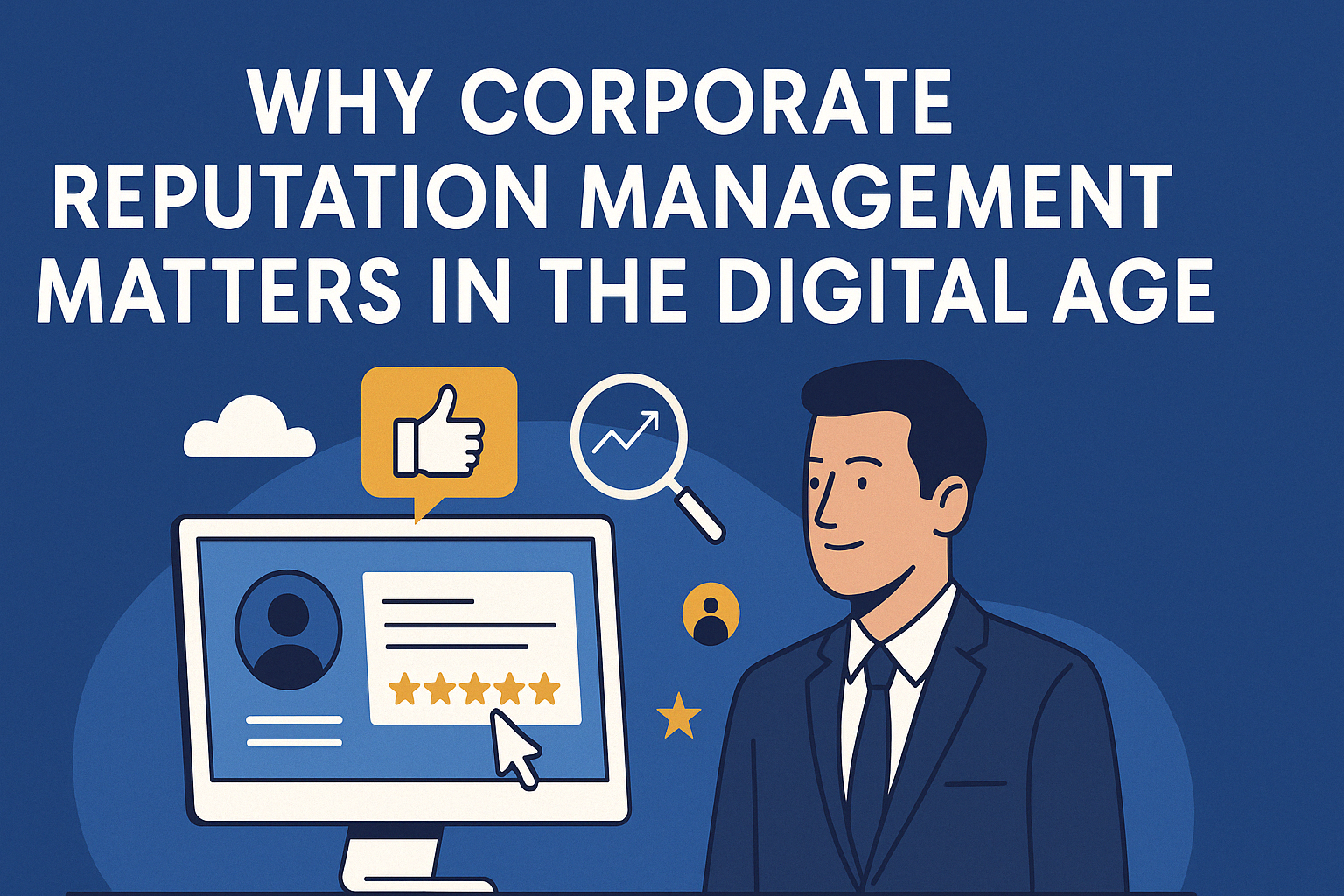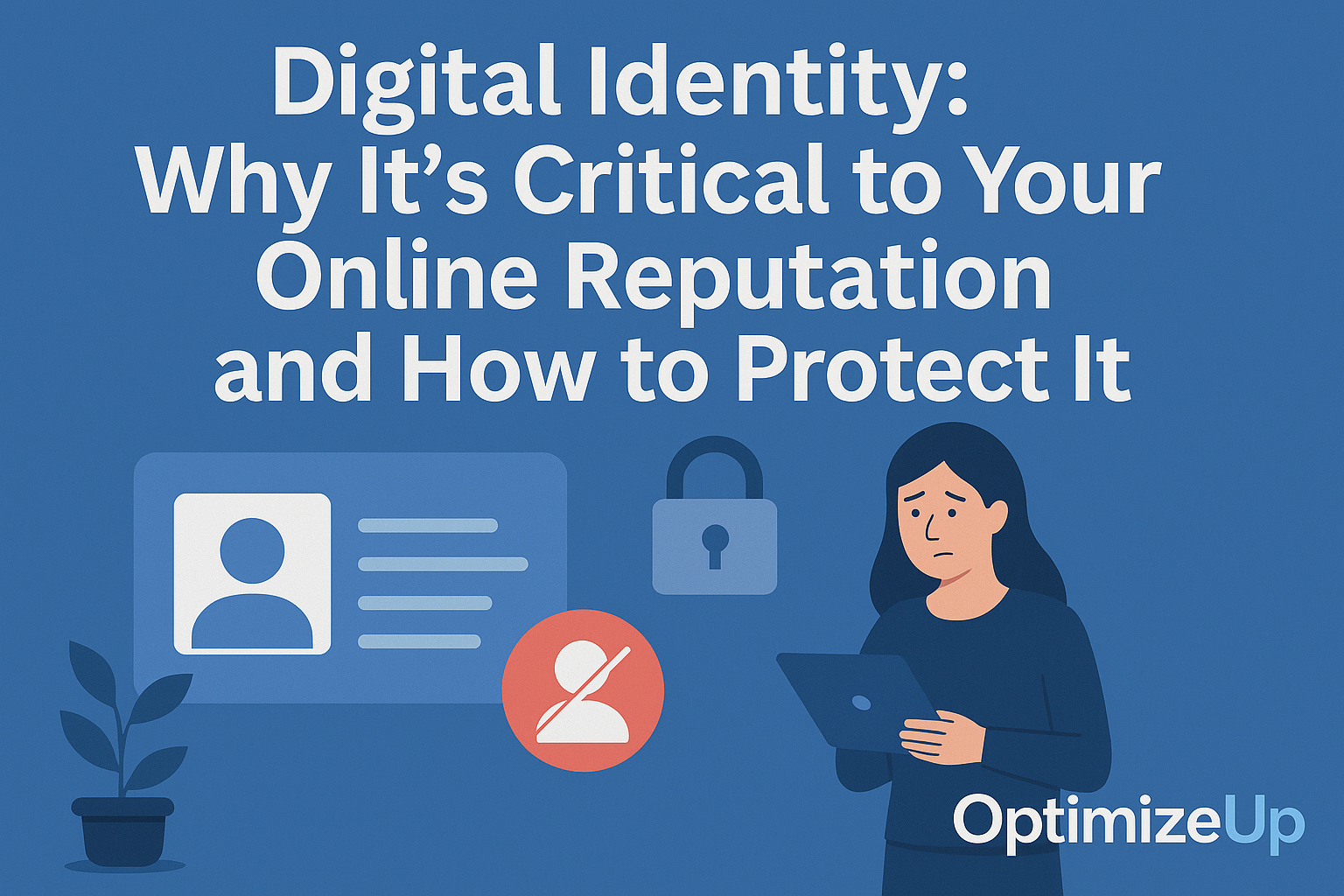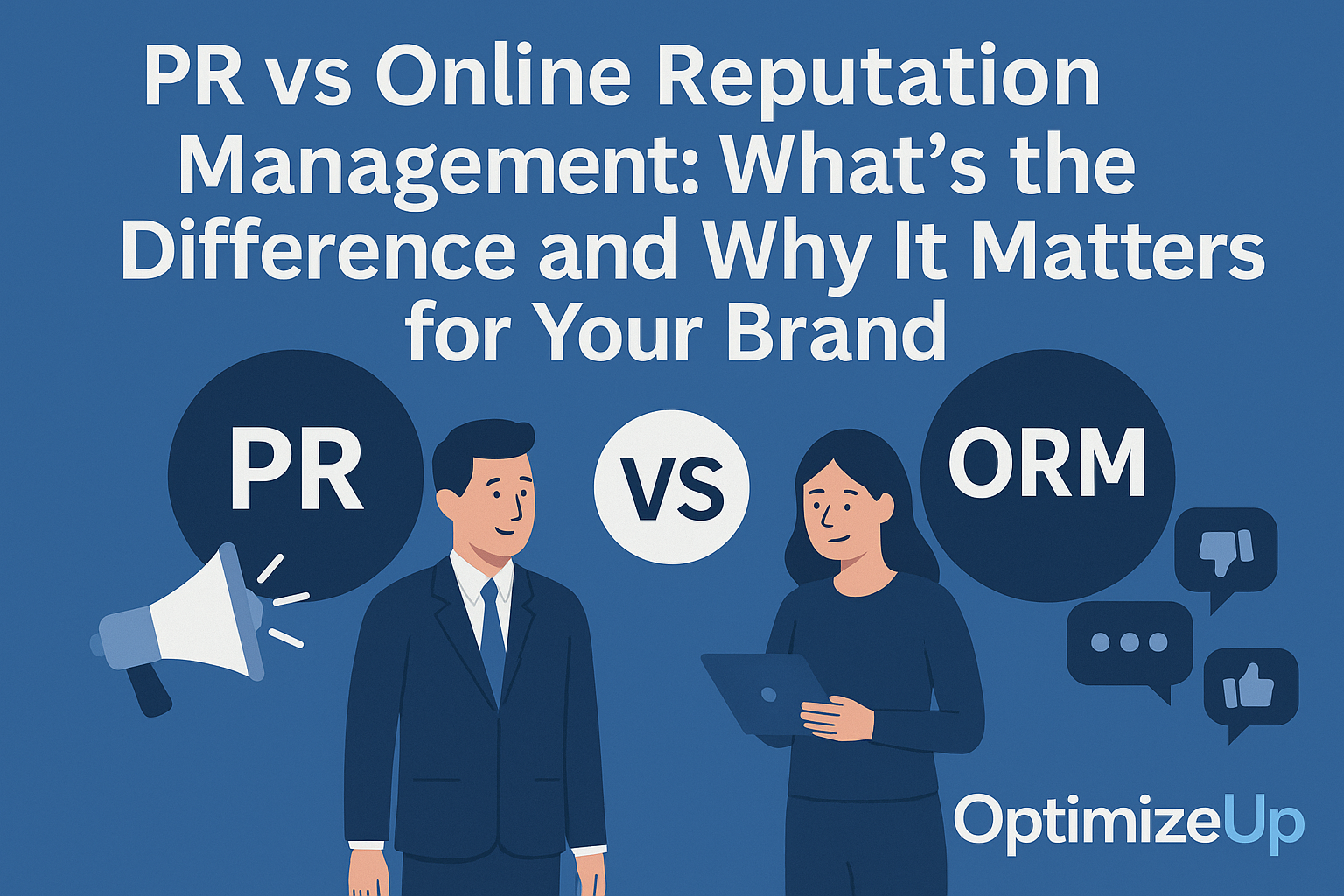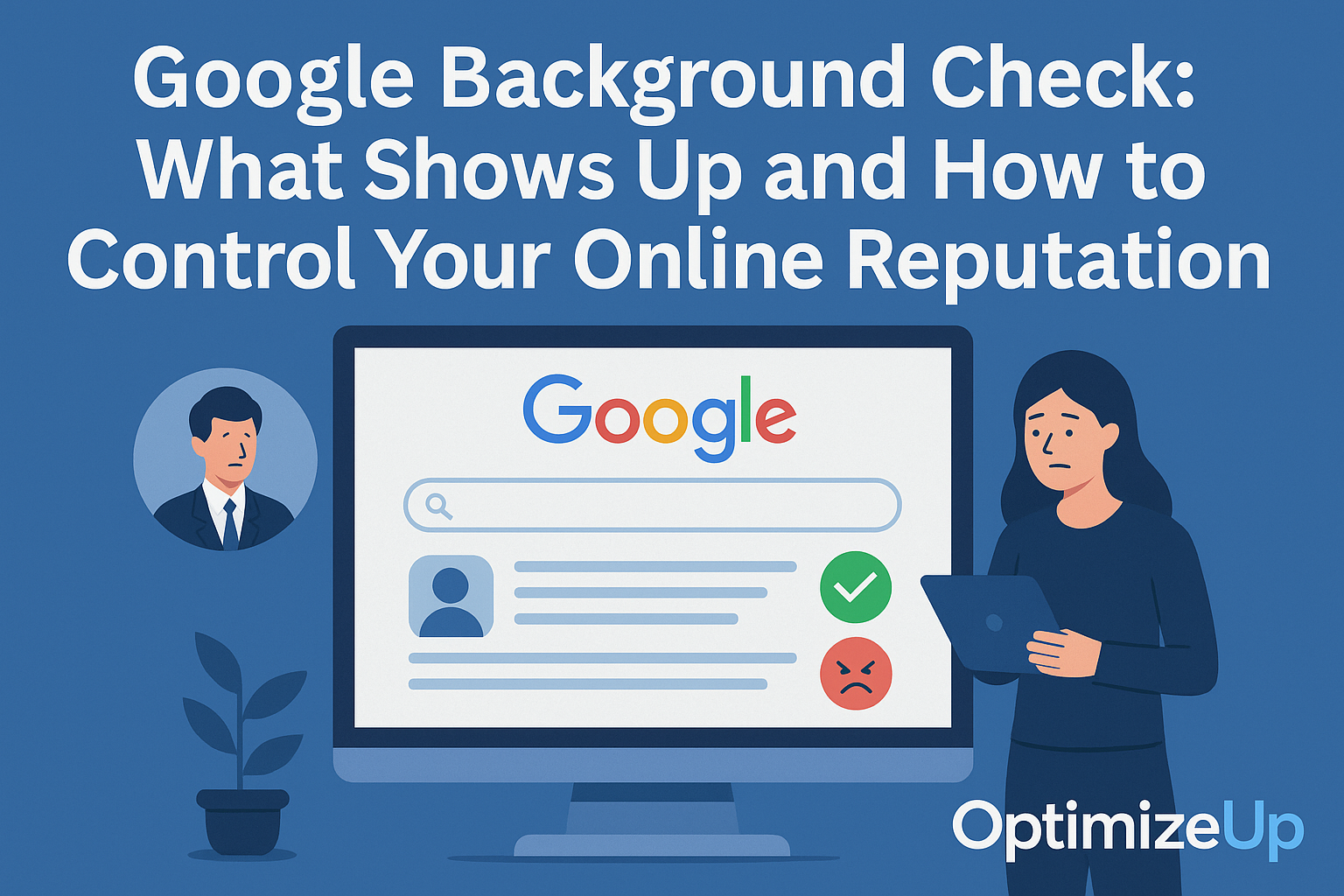The Strategic Value of Corporate Reputation
A brand’s reputation is more than a byproduct of good service—it’s a foundational element of corporate value. According to the World Economic Forum, reputation accounts for more than 25% of a company’s market value.
Core Benefits of a Strong Corporate Reputation:
- Increases stakeholder trust and retention
- Attracts top-tier talent
- Strengthens investor and shareholder relations
- Boosts media credibility and earned coverage
- Provides resilience during public crises or economic downturns
A solid reputation isn’t just a defensive shield—it’s an offensive asset. It opens doors to partnerships, premium pricing, and long-term customer loyalty. Reputable companies enjoy a halo effect, where goodwill extends beyond core offerings and influences positive sentiment even in peripheral markets.
Key Pillars of Corporate Reputation Management
1. Executive and Leadership Positioning
Leaders reflect the ethos of the company. Their public behavior, communication style, and values shape external perceptions.
Tactics:
- Develop CEO social media profiles on LinkedIn and Twitter/X
- Publish thought leadership articles and op-eds
- Use speaking opportunities at events and conferences
- Highlight leadership’s philanthropic initiatives and advisory roles
CEO reputation alone can drive or drag share price performance. According to Edelman’s Trust Barometer, 70% of respondents say building trust in the CEO is more important than the brand itself.
2. Media and Public Relations
How the media covers your company significantly influences perception.
Strategic Actions:
- Build relationships with industry journalists
- Create a media kit and newsroom page on your site
- Issue press releases with trustworthy distribution channels
- Respond to media inquiries promptly and transparently
- Train executives in media handling and crisis interviews
3. Online Presence & Search Engine Visibility
What appears on the first page of Google defines your brand to stakeholders.
Optimization Must-Haves:
- Corporate blog with high-E-A-T content
- Branded social media channels
- Optimized Wikipedia page (if applicable)
- Branded search term monitoring with Google Alerts or SEMrush
- Video content embedded with SEO schema to own more SERP real estate
4. Crisis Response Protocols
Reputation damage often stems from unpreparedness. A crisis can be an opportunity to show leadership and transparency.
Action Plan:
- Build a documented crisis communication framework
- Appoint a crisis team and spokesperson
- Monitor social media and news in real time
- Respond publicly within 2–4 hours of incident detection
- Archive and analyze crisis responses for continuous improvement
5. Review and Sentiment Management
Corporate reviews are no longer limited to consumers—platforms like Glassdoor, Trustpilot, and even Reddit forums influence decisions.
Strategy:
- Proactively gather employee and client reviews
- Monitor review sites weekly
- Respond professionally and address recurring feedback themes
- Use sentiment analysis tools to identify shifts in perception
Corporate Reputation Risks to Monitor
Common Threats:
- Executive misconduct or public gaffes
- Data breaches and cybersecurity incidents
- Negative employee reviews
- Greenwashing accusations
- Customer service scandals
- Social or political misalignment
Reputation Risk Mitigation:
- Conduct quarterly reputation audits
- Invest in cybersecurity infrastructure
- Review social media policies for employees
- Ensure consistent ethical branding across campaigns
- Monitor ESG metrics and report transparently
Tools and Platforms for Reputation Intelligence
Monitoring Tools:
- Meltwater – PR, social, and media intelligence
- Brandwatch – Sentiment analysis and consumer trends
- Mention – Tracks brand mentions across web and social
- Google Alerts – Free tool to track brand names and executive references
- Reptrak – Measures reputation score across seven key drivers
Crisis Simulation Platforms:
- RockDove Solutions – Crisis management simulation software
- OnSolve – Communication system for emergency alerts
- Crisismaestro – Real-time alerting and protocol testing
SEO & Content Platforms:
- Surfer SEO – Optimize brand content for Google ranking
- Ahrefs – Backlink profile and brand search visibility monitoring
- BuzzSumo – Tracks shareable and influential content by topic
- Clearbit Reveal – Enriches visitor data for personalized brand engagement
Elevating Reputation Through Thought Leadership
Thought leadership doesn’t just build authority—it drives trust.
Execution Tactics:
- Publish whitepapers, webinars, and research studies
- Create executive columns in high-authority publications
- Host podcasts or participate as guest speakers
- Integrate proprietary data into industry reports
- Build a library of expert guides and downloadable resources
- Promote leadership’s mentorship or advisory roles in startup ecosystems
These efforts not only boost SEO rankings but build link equity and media interest.
Building Internal Culture That Reflects External Reputation
Employees are your most credible advocates. Their satisfaction reflects in Glassdoor reviews, LinkedIn posts, and word-of-mouth.
Culture Reputation Strategies:
- Conduct regular anonymous feedback surveys
- Showcase employee stories and awards
- Build CSR and ESG programs aligned with core values
- Feature DEI initiatives in public reporting
- Empower employees to share brand moments on social media
Internal engagement should include transparency from leadership, open-door policies, and company-wide recognitions. A reputation culture starts from within.
Corporate Social Responsibility and Reputation
CSR isn’t just a checkbox—it’s a long-term investment in reputation.
Impact Areas:
- Environmental sustainability
- Local community involvement
- Ethical labor practices
- Transparent supply chains
- Inclusive marketing practices
Amplification Tactics:
- Issue sustainability reports
- Partner with credible nonprofit organizations
- Encourage employee volunteerism and match donations
- Share annual impact assessments publicly
- Invite customers to participate in cause-based initiatives
Public trust rises when CSR feels authentic and trackable.
How Optimized Up Supports Corporate Brands
At Optimized Up, we tailor custom reputation strategies that scale with enterprise demands:
- Online reputation monitoring and suppression
- Executive branding and PR campaign support
- Crisis management frameworks and simulation drills
- Google SERP optimization and content publication
- Investor and media communication alignment
- Brand equity audits and sentiment tracking
Book a strategy call and discover how we protect and enhance your brand at every level.
FAQ: Corporate Reputation Management
It’s the practice of influencing and controlling a company’s public perception through brand strategy, media engagement, stakeholder alignment, and reputation monitoring.
Strong reputations can influence up to 25% of a company’s valuation. It affects investor confidence, partnerships, and risk mitigation.
PR is reactive and campaign-driven. Reputation management is proactive and sustained across all brand touchpoints.
Only if it’s false, outdated, or violates policy. Otherwise, it must be pushed down using strategic content and SEO.
At least quarterly. Monthly sentiment monitoring is recommended during crisis periods.
MLA Citations:
World Economic Forum. “The Role of Reputation in Company Valuation.” WEF Reports, https://www.weforum.org
Spiegel Research Center. “How Online Reviews Impact Consumer Purchase Behavior.” Northwestern University, https://spiegel.medill.northwestern.edu
Brandwatch. “Reputation Management in 2024.” Brandwatch Blog, https://www.brandwatch.com/blog
Forbes. “Corporate Social Responsibility and Brand Trust.” Forbes Leadership, https://www.forbes.com
Edelman. “Trust Barometer.” Edelman Insights, https://www.edelman.com/trust-barometer





